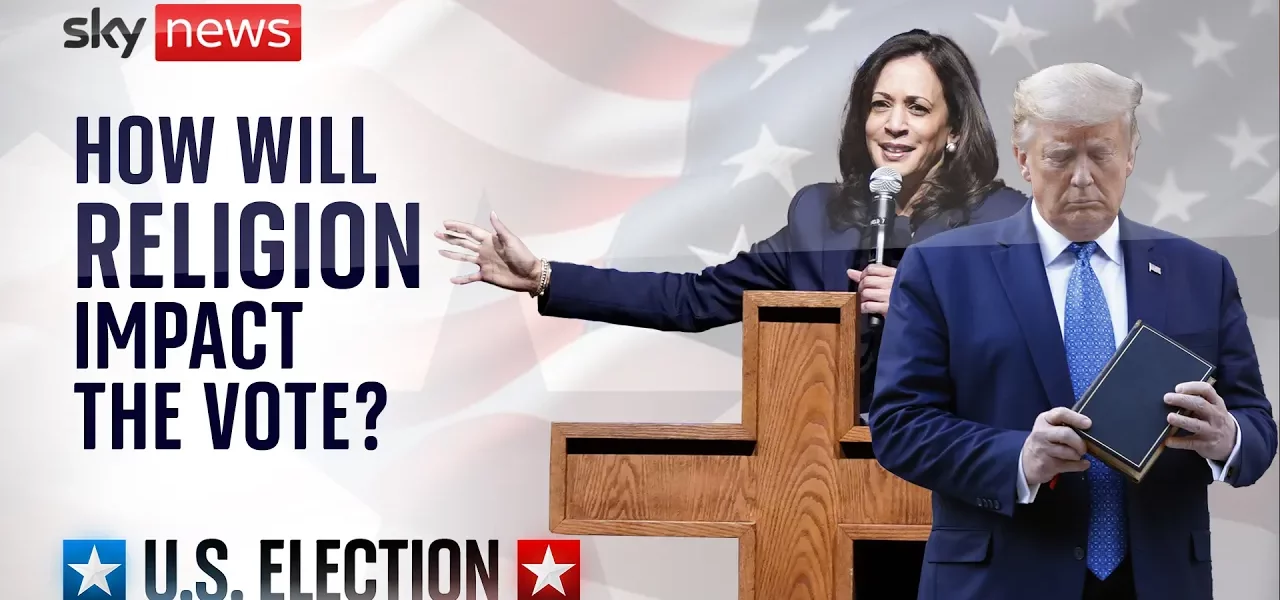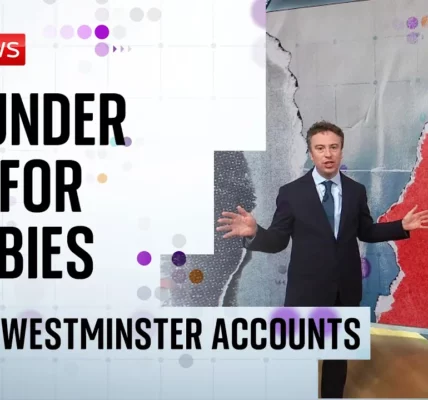The Role of Religion in American Politics: Influence on Elections

Religion has long been a cornerstone of American culture and identity. With approximately two-thirds of voters identifying as Christian, the intersection of faith and politics continues to shape the landscape of U.S. elections. This article delves into how religious affiliations influence voter behavior, party alignment, and critical issues like abortion and foreign policy, particularly in the context of the upcoming presidential election.
Introduction
The United States is often seen as a bastion of religious belief, especially when compared to other Western nations. Historically, faith has played a significant role in American society, with many individuals finding strength and community within their religious institutions. However, recent surveys indicate a decline in religious identification, raising questions about how these changes may impact upcoming elections. This article will explore the shifting religious landscape, the implications for political parties, and key issues influencing voters in the current electoral climate.
The Decline of Religious Affiliation
Over the past few decades, America has witnessed a notable decline in religious affiliation. In the 1990s, around 90% of Americans identified as Christians. Fast forward to today, and more than a quarter of the population reports having no religious affiliation. This shift is particularly significant in the context of elections, as non-religious voters tend to lean towards the Democratic Party.
Statistics on Religious Affiliation
- In the 1990s, approximately 90% of Americans identified as Christian.
- Currently, over 25% of Americans claim no religion.
- 70% of non-religious voters align themselves with the Democratic Party.
Regional Differences in Religious Affiliation
Despite the overall decline, religious adherence is not uniform across the country. States like Florida are experiencing a resurgence in religious affiliation, contrasting with trends in more secular regions.
Party Alignment and Religious Groups
Religious affiliation plays a crucial role in party alignment in the United States. Various religious groups tend to align more closely with either the Democratic or Republican parties, influencing electoral outcomes significantly.
Evangelical Protestants
Evangelical Protestants represent a substantial voting bloc, predominantly aligning with the Republican Party. Their high motivation to vote can have a considerable impact on election results.
Catholics and Other Denominations
Catholic voters present a more divided front:
- 60% of Hispanic Catholics identify with the Democratic Party.
- Just over half of Catholic voters tend to vote Republican.
Jewish and Muslim Voters
Jewish and Muslim voters largely lean towards the Democratic Party:
- 70% of Jewish voters identify with the Democrats.
- 66% of Muslim voters either identify or lean Democratic.
The Impact of Swing States
Swing states are pivotal in determining the outcome of presidential elections. In the 2020 election, seven states were won by less than three percentage points, highlighting the significance of voter alignment within these regions.
Key Swing States
- Arizona
- Georgia
- Michigan
- Pennsylvania
- Wisconsin
- North Carolina
- Nevada
Trends in Religious Affiliation
Trends from the 2010 to the 2020 census show that states like Michigan and Pennsylvania are becoming less religious, while North Carolina and Arizona are trending in the opposite direction. This shift could significantly affect the electoral outcomes in these states.
Critical Issues Influencing Voter Decisions
Several key issues are likely to sway voters in the upcoming election, with abortion rights being at the forefront.
The Abortion Debate
The Supreme Court’s decision in June 2022 to overturn Roe v. Wade has intensified the abortion debate across the nation. With 14 states imposing strict abortion bans, including in cases of rape and incest, public opinion remains divided:
- A majority of Americans, including many Christians, support abortion access.
- Pew surveys indicate that beyond White evangelicals, a significant number of Christians favor maintaining abortion rights.
Support for Israel
American evangelicals largely support Israel, partly due to biblical prophecies. This stance influences political candidates as they seek to secure votes from this demographic.
Conclusion
As America continues to navigate the complexities of its religious landscape, the impact on the political arena cannot be overstated. With shifting allegiances and the rise of non-religious voters, the dynamics of party alignment are evolving. The upcoming election will be critical in determining how these changes manifest in voter behavior and ultimately in the electoral outcome. It is essential for voters to stay informed and engaged in the political process, as every vote counts. For further insights on political trends and voter behavior, explore our related articles.
“`




